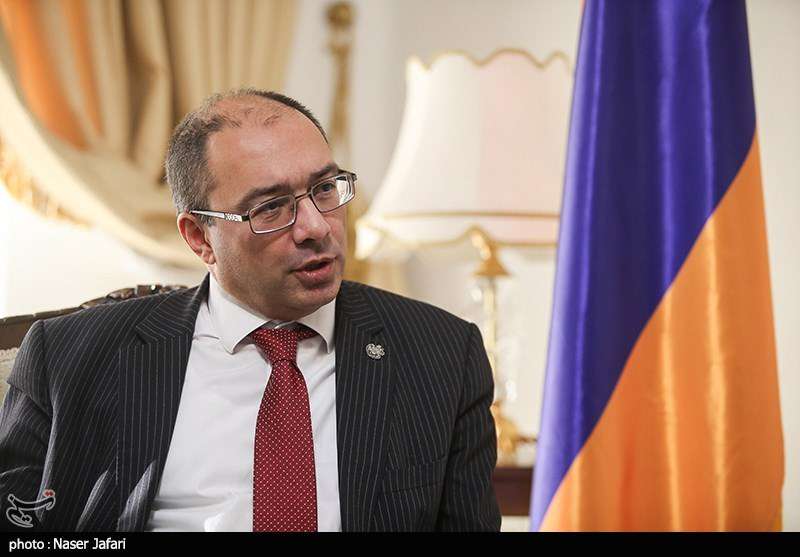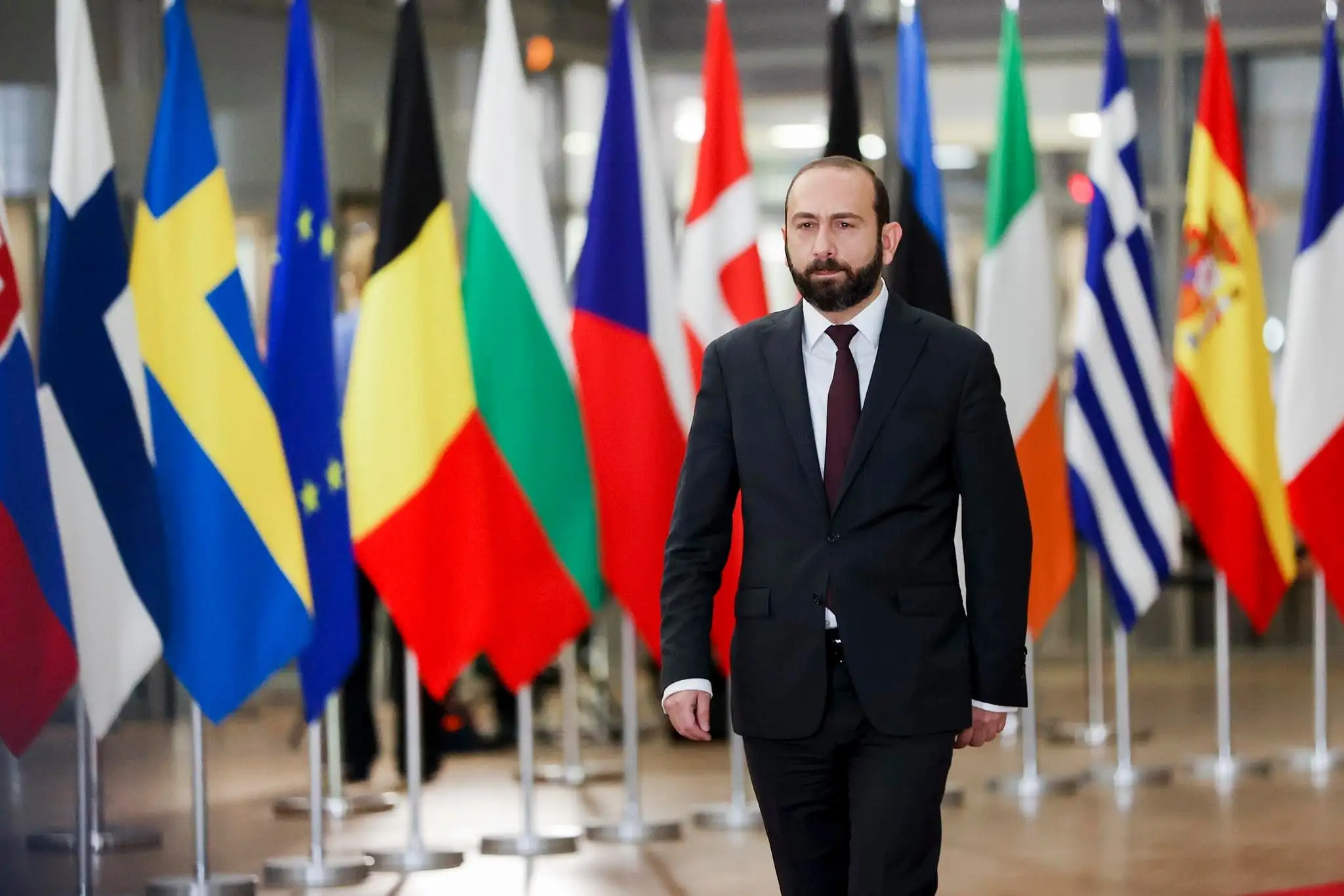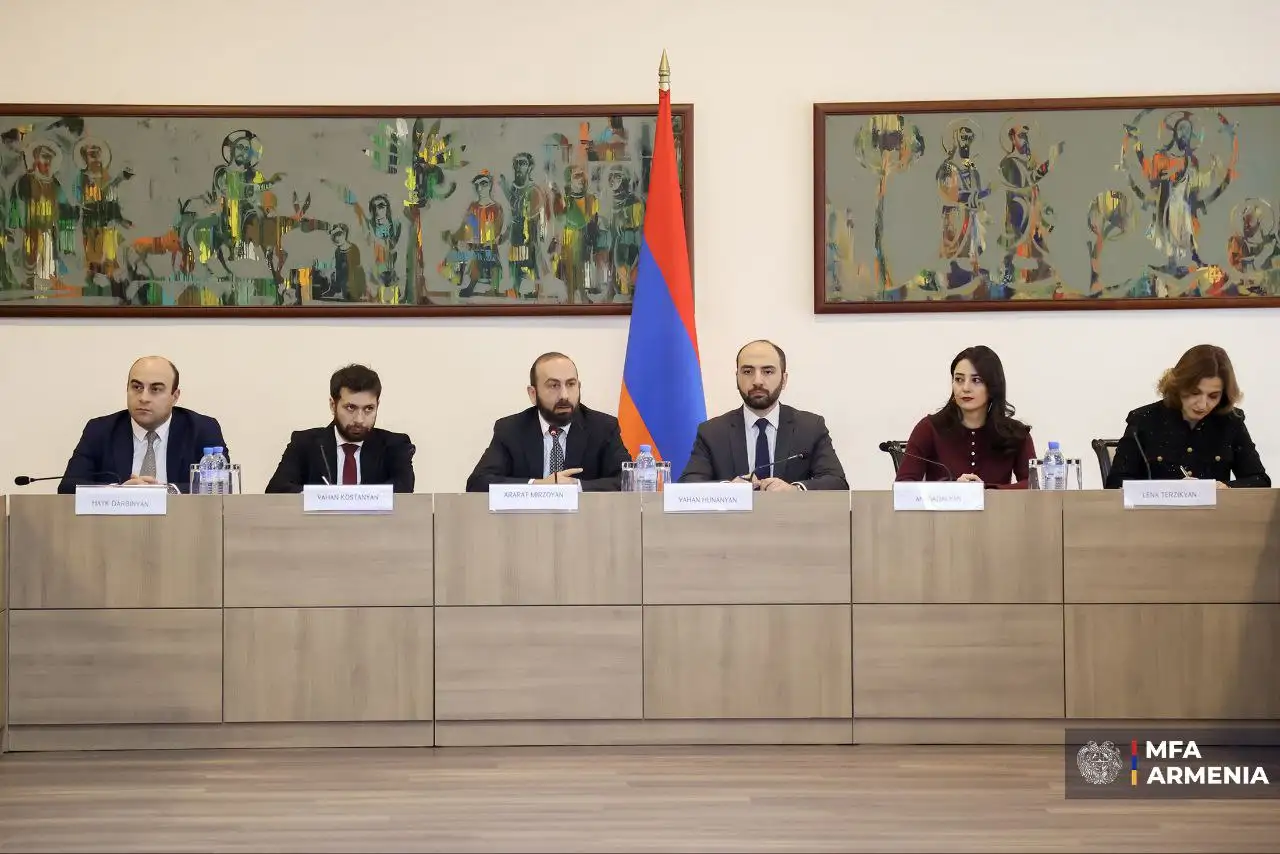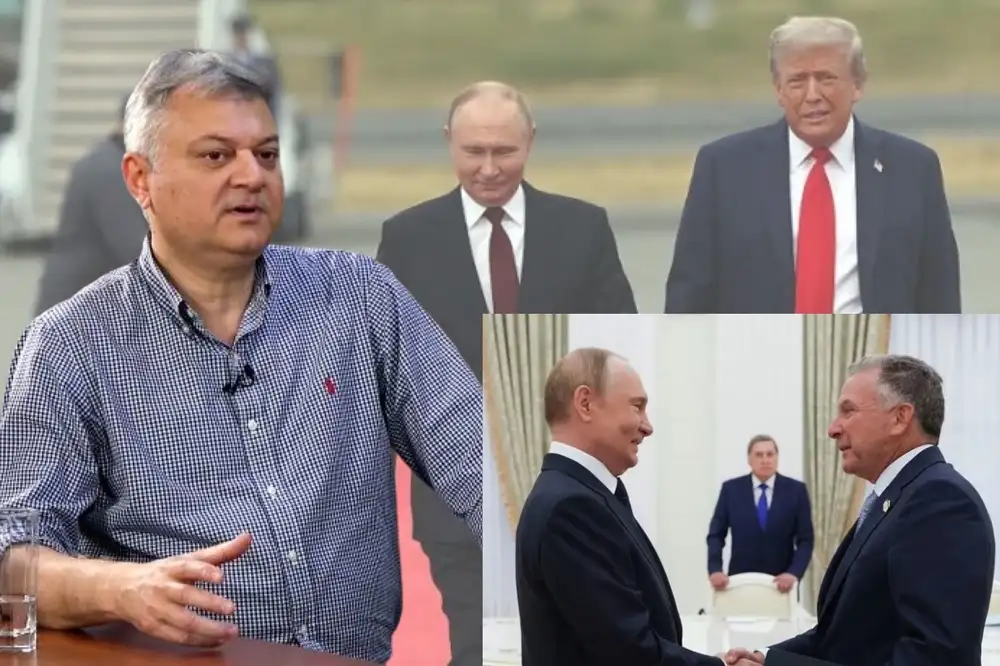The Ambassador Extraordinary and Plenipotentiary of the Republic of Armenia to the Islamic Republic of Iran spoke with the news agency "Tasnim."
- How are Iran-Armenia political and economic relations progressing in the last two years after the Karabakh war?
- Allow me to note that since the independence of the Republic of Armenia, during the past 30 years, Armenian-Iranian relations have always been one of the priority directions of RA's foreign policy, considering both the centuries-old ties of our two countries, as well as common interests and great opportunities for cooperation. The recent events in our region, including the 44-day war of 2020, and the involvement of terrorist organizations in it by the Turkish-Azerbaijani tandem, make the common challenges to Armenia and Iran even more prominent and also make further deepening of RA-IRI bilateral relations aimed at ensuring stability and security in the region. Taking into account the above, as well as the political will of the governments of the Republic of Armenia and the Republic of Iran to develop cooperation, led to the fact that, especially in the last period, the relations between the two countries entered a new stage of development in political, economic and other spheres, which is evidenced only during the current year by the Prime Minister of the Republic of Armenia and The four meetings held between the President of Iran.
- What will be your mutual step after establishing the Iranian consulate in Kapan?
- I consider it necessary to mention that the issue of opening the Consulate General of the Republic of Iran in Kapan, and the Consulate General of the Republic of Armenia in Tabriz, was previously discussed, and even a memorandum of understanding was signed between the parties on this issue in 2007. However, the case has entered an experimental stage during the last two years. The opening of the Consulate General in Kapan by Iran clearly emphasizes the strategic importance of the RA Syunik region from the point of view of ensuring the RA-IRI land connection. In the mentioned logic, the Armenian side, for its part, is interested in opening the main consulate in the city of Tabriz, the center of the Eastern Atrapatan Province of the Republic of Iran, the preparations for which are in progress. In the context of trade and economic relations with Iran, Tabriz is essential for RA, considering the city's financial, in, industrial and logistic possibilities. Therefore, with the joint efforts of the governments of the Republic of Armenia and the Republic of Iran, it will be possible to develop and strengthen the thousand-year-old route passing through the Armenian-Iranian border, the importance of which was also mentioned by the respected leader of the Islamic Revolution in his speech.
- Considering Georgia's presence on the North-South transit route, what steps have been taken to connect Tbilisi to this project?
- Of course, from a geographical point of view, Georgia is essential in implementing the "Persian Gulf-Black Sea" corridor. We think that the consistent work aimed at the launch of the hall, the study of possible economic benefits, and the increasing interest of European and Asian countries in this future project will make it even more attractive. Profitable for our Georgian partners, considering that its launch will significantly increase the number of Georgian ports—Volumes of cargo transportation from Asia to Europe and vice versa. You are probably aware that the RA government is currently implementing the construction of the "North-South" highway, after the completion of which, according to experts' assessment, it will be possible to deliver cargo from Chabahar, Bandar Abbas and other southern Iranian ports to the Georgian Black Sea within 2-3 days. Ports, further continuing the route to Europe. Armenia, for its part, continues to work with its Georgian partners to join the "Persian Gulf-Black Sea" project.
- How are the negotiations with the Azerbaijani side about the provisions of the ceasefire agreement and such issues as the legal-political status of Karabakh, and also in the direction of joining the Nakhichevan region to the Republic of Azerbaijan?
- The Armenian side has repeatedly stated that it is ready to sign a peace treaty with Azerbaijan and carry out the process of border demarcation and demarcation. In recent months, the meetings held between the Prime Minister of Armenia and the President of Azerbaijan in various formats, with the participation of international mediators, were dedicated to this issue. There is a clear call from the international community to move in the direction of establishing peace. Still, instead of implementing the agreements reached after each meeting, Azerbaijan resorts to new provocations. As a result of those provocations, starting from May 2021, significant parts of the sovereign territory of RA came under occupation. Another manifestation of such an aggressive policy was the large-scale aggression that took place on September 13-14 this year, during which many Armenian settlements were bombed, Azerbaijani armed forces illegally occupied several border areas of RA Syunik and Gegharkunik regions, creating a direct threat to Armenian cities and civil infrastructures. Moreover, the statements of the President of Azerbaijan in Shushi on November 8 of this year demonstrate the aggressive goals of Azerbaijan. The latter's mention of several RA cities in the context that the Azerbaijani Armed Forces target them is a clear threat of further aggression against the Syunik region. Such a way of working is a threat not only to Armenia but also to the entire region's stability.
Azerbaijan also continues its aggressive policy towards the Armenians of Nagorno-Karabakh, continuously terrorizing the local population, combined with armed operations in the area of responsibility of the Russian peacekeeping troops. The Armenian side has repeatedly emphasized that in the context of the settlement of the Nagorno-Karabakh conflict, ensuring the rights and security of the local Armenian population is a cornerstone.
- Regarding the disagreement in the Meghri region, what is Azerbaijan's demand, and what is your opposition?
- It is regrettable to record that Azerbaijan continuously circulates the idea of the so-called "Zangezur Corridor," which is not substantiated by any document signed between the parties. The Armenian side has repeatedly stated that it will not provide an extraterritorial corridor through the territory of the Republic of Armenia to any third country and has never undertaken such an obligation. Armenia adheres to the commitment made in the tripartite statement of November 9, 2020, to ensure a reliable land connection between the western regions of Azerbaijan and the Autonomous Republic of Nakhichevan. For this purpose, border checkpoints have been placed in several sections of the RA-ASR border. As the RA Prime Minister has announced, citizens of Azerbaijan can now use them to travel to Nakhichevan and vice versa. At the same time, although the Armenian side does not have such an obligation, it has expressed willingness to discuss the possibility of building new highways and railways. Still, Azerbaijan rejected several proposals the Armenian side presented in this direction, trying to draw parallels with the Lachin Corridor. In this regard, it should be emphasized that, apart from the fact that the tripartite declaration agrees upon the operation of the Lachin Corridor, it is also the only and vital way to ensure the connection of Nagorno-Karabakh with the outside world, without which it will end up in a complete blockade, so no parallel is appropriate. To conduct between that passage and the transit route connecting the western regions of Azerbaijan with Nakhichevan. Currently, the possibility of unblocking the railway connection is being discussed. This can create great opportunities for Armenia and Iran as well.
- What is Russia's position regarding the disagreements between Yerevan and Baku regarding Karabakh and connection points, and why did the Armenian Foreign Minister demand Moscow's precise position in this regard?
- The RA political leadership, in particular RA Prime Minister Nikol Pashinyan, has more than once in his speeches emphasized the role of the Russian Federation in settlement of the Nagorno Karabakh conflict, including the part of the Russian peacekeeping forces in ensuring the security of the Armenian population of Nagorno Karabakh. At the same time, it was officially announced that Armenia supports the proposals presented by the Russian side in August of this year, which can be the basis for further negotiations on the regulation of relations between Armenia and Azerbaijan. The Republic of Armenia has also proposed to extend the presence of peacekeeping forces in Nagorno Karabakh. It expects that this military force will fully fulfill its functions to ensure the security of the Armenian population of Nagorno Karabakh.
- How is the normalization of relations with Turkey progressing, and will one of the two countries host the next round of negotiations, or is there a third country?
- At the moment, there has yet to be an agreement regarding the dates and place of the meeting between the special representatives. Following the agreements reached between the special representatives, a meeting of the relevant working group of Armenia and Turkey was held at the Armenian-Turkish border on the instructions of the leaders of the two countries to discuss the preparations necessary for the opening of the frame for citizens of third countries and the approval of air cargo transportation. Implementing these arrangements can give a new charge to the settlement process.
- Does the normalization of Armenia-Turkey ties have anything to do with issues between Armenia and Azerbaijan?
- These two processes are separate, and relations with Azerbaijan should not condition the settlement process between Armenia and Turkey.
- How do you assess the course of developments in the South Caucasus, and is it possible that the differences with Azerbaijan will disappear before the end of the year?
- We consider that the primary step to achieving peace is the cessation of aggressive actions by Azerbaijan toward the Republic of Armenia and the return to the normal negotiation process to conclude a peace treaty. The Armenian side has been more than constructive and has always come up with flexible proposals to resolve the situation. However, it should be clearly stated that as a result of the invasion of the sovereign territory of Armenia by Azerbaijani troops in May 2021, November 2021, and September 2022, the internationally recognized territorial integrity of Armenia was violated, which must be restored. It is noteworthy that as a result of the quadrilateral meeting held in Prague on October 4, 2022, a statement was adopted, according to which Armenia and Azerbaijan confirmed their commitment to the UN Charter and the 1991 Alma-Ata Declaration, documents through which both sides recognize each other's territorial integrity. And the sovereignty, which will be the basis for the work of commissions on border demarcation issues for developing a peace treaty.
The Armenian side has repeatedly stated at the highest level that it wants and is ready to sign the peace agreement by the end of the year; it remains for the Azerbaijani side to show political will in this direction. In the case of striving for real peace, let's hope it is possible to achieve a positive result.




















